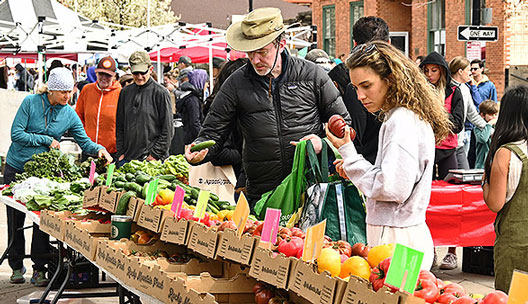
Blending Us In Too
Saturday is a quasi holiday for many adults, and for children. A timeout from the usual routine of work, perhaps some chores around the yard or house, followed by a visit to the Farmer’s Market. Certainly that describes a Saturday in late summer for those like myself living in a Fox River Valley community. We were present at a soccer game for our grand daughter, the first event of our day. Then to the farmer’s market somewhat later than usual. Grabbed a cup of New Orleans style coffee, coffee with chicory. The addition of milk made it palatable. Is it possible to develop a “taste” for chicory…? The reason ground chicory root was used for a beverage, wartime Confederates could no longer obtain coffee. For Southerners the bitterness ought to be a reminder!
I am nearing the finish of Nietzsche’s The Gay Science. He concludes his compendium of reflection on his late 19th Century European ethos, and our 21st Century present by a collection of poetry. He believed that poetry was better suited to convey his views than the prose of a philosophical writing style. As a philologist, a specialist in language, he certainly had an informed opinion.
I will consider some of his poems, adding a few lines of my own comment.
Here is the first poem in the collection and is written To Goethe, the late 18th, early 19th century German poet, playwright, novelist, scientist, statesman, theater director, and critic. Nietzsche’s words to one of his mentors emphasizes a central assertion of The Gay Science, that “God” is a fabrication of culture, a dimension of our life-together as homo sapiens.
I have highlighted the descriptive words which illuminate “God.”
The indestructible
is but your invention.
God, the ineluctable,
poetic pretension.
World wheel, while rolling on,
skims aim on aim:
Fate, says the sullen one.
fools call it a game.
World game, the ruling force,
blends false and true:
the eternally fooling force
blends us in too.